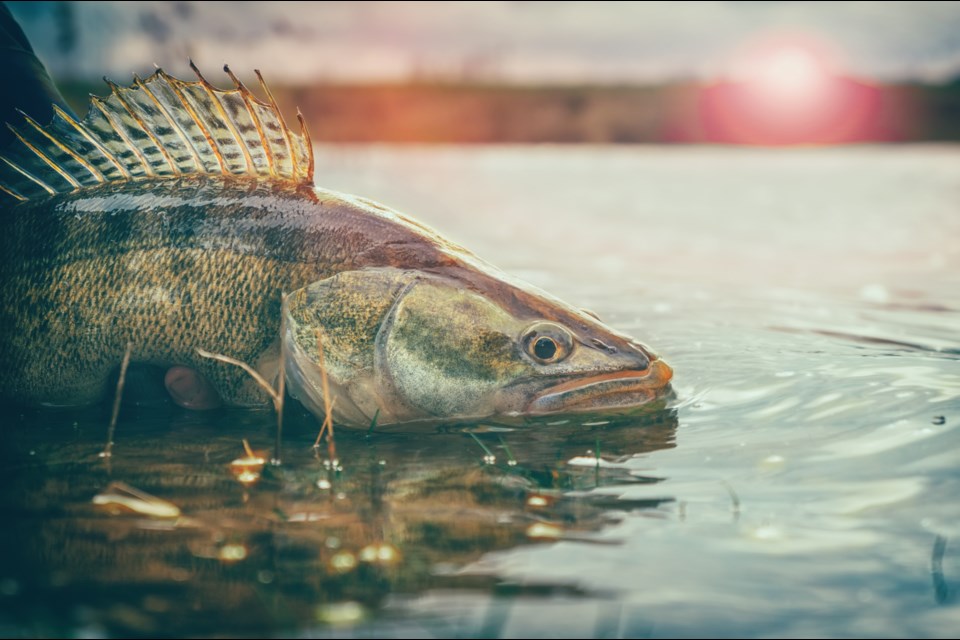Recent modifications to the ministry’s fishing regulations in Sault Ste. Marie and surrounding communities are leaving some anglers frustrated, SooToday has learned.
John Kallio, president of the Ontario Outdoors Recreational Association (OntORA), disagrees with rulings concerning walleye and lake trout for Fisheries Management Zone 10 (FMZ 10).
That zone oversees the lakes and rivers stretching from Sault Ste. Marie to Sudbury, with some portions falling within the boundaries of Timmins, Wawa, Kirkland Lake, and Chapleau districts.
Since 2008, anglers in FMZ 10 have been allowed to catch four walleye with one measuring longer than 18 inches.
But changes to the area’s management plan as of Jan. 1, 2024, now insist that all four walleye must measure less than 18 inches in length – a restriction Kallio feared could take effect when he last spoke with SooToday in November 2022.
“Most of the anglers are pretty upset about this,” Kallio said. “Anglers will tell you there’s no reason to not allow one over 18 inches anymore. You’re damaging fish by throwing them back. We can advise and educate people on how important it is to let those big six and eight-pounders go. They don’t taste good anyway.”
In an email issued to SooToday, Ministry of Natural Resources and Forestry spokesperson Sarah Fig noted that walleye are the second most targeted sport fish species in winter and claimed that its population in the area remains stressed.
“Provincial monitoring results show that the walleye population in FMZ 10 is among the lowest of northern FMZs, and particularly adult walleye abundance is below levels considered sustainable,” she wrote. “Changes will help to ensure sustainable fisheries management, while helping to protect, preserve and recover walleye populations.”
“There are well-established indicators (from studies/literature) of fish population ‘health’ (e.g., low abundance, high growth rates, small number of age classes, low recruit age),” she continued. “These indicators were calculated from Broad-scale Monitoring (BsM) data and compared to benchmarks and regionally.”
Before the updated management plan for Zone 10 was revealed, Kallio also communicated to the ministry, as well as his counterparts on the FMZ 10 Advisory Council, that the limit of two lake trout should be any size.
A ruling since 2010 allows anglers to catch one lake trout greater than 40 centimetres, and the other below.
The OntORA president was frustrated when he found out that regulation remained unchanged for 2024.
“In the wintertime, some lakes you’re fishing, you’re not catching that under,” Kallio said. “So, if you get a fish hooked really bad, you’re just shoving it down the hole so you can keep fishing and be legal. That’s what we tried to explain to the ministry and tell them, put it two fish any size and educate the public on letting larger fish go. They’re killing fish the way they’re doing it.”
“Anything over two or three pounds isn’t worth keeping because they don’t taste as good,” he added. “Give anglers some credit. We’re not asking them to put the limit back to three.”
The ministry argues that the lake trout population hasn’t recovered to the desired levels of abundance or age structure according to their management plan, which was backed by strong support from the FMZ 10 Advisory Council.
But the current regulation may not be a permanent fixture.
“The ministry and the Advisory Council have committed to reviewing the status of lake trout in FMZ 10 and reassessing the success of the regulation in 2024,” Fig wrote. “In response to concerns brought forward in public consultation, the Advisory Council is also exploring options to help reduce the impact of catch and release mortality on lake trout.”
According to Kallio, the concerns he and other anglers share aren’t just for the lake trout.
“Some people don’t bother fishing for lake trout anymore because they’re so frustrated, so they go to other lakes,” he explained. “They’re fishing brook trout lakes, then fishing more [walleye] lakes. In the end, what [is the ministry] going to come back and say? The speckled trout and brook trout are now in jeopardy, we’ve got to lower that limit, too.”
In a recent press release, Kallio suggested that anglers are not well represented on the FMZ 10 Advisory Council as they make up five of the 26 sitting groups.
In addition to angler clubs, the council includes First Nation and Métis communities, naturalist clubs, retail businesses, tournament organizers, and cottage owners.
Kallio told SooToday the only council members who voted “no” to the current walleye and lake trout regulations were representatives for angler groups.
While a majority ruling from the FMZ 10 council isn’t the sole determining factor for updating its management zone plans, the ministry says, “all available options undergo extensive public consultation” and they consider “all perspectives before making a decision.”
“We don’t have a chance at getting the vote,” Kallio said. “For some reason, anglers and hunters seem to be ignored and we are the ones paying license fees and taxes. It’s time anglers and hunters in Ontario had a stronger voice and this can only be done if anglers and hunters vote strategically together.”
The ministry remains adamant they are “striving to achieve a balance between safeguarding resources and providing angling opportunities.”
